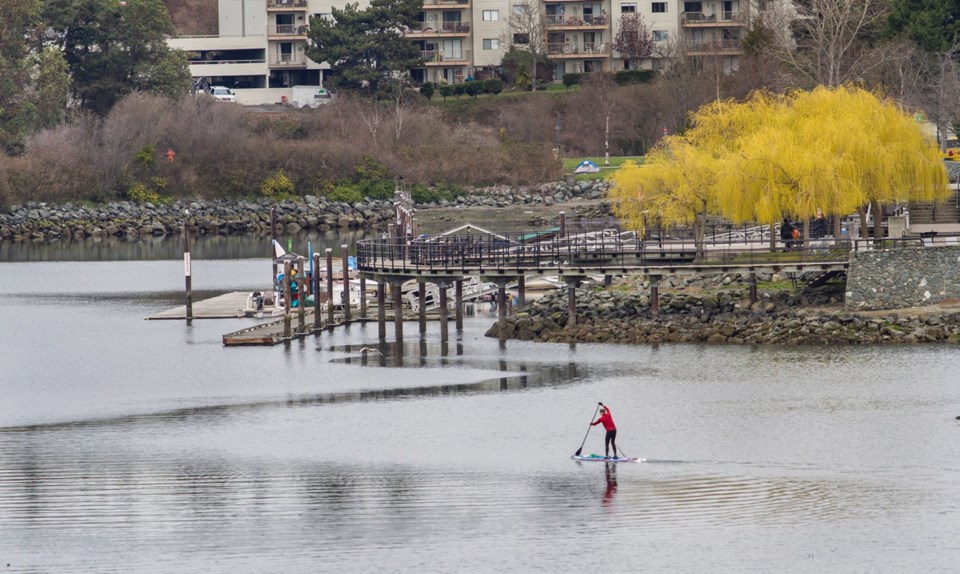Donate at rapidrelieffund.ca. More options below
Your friends and neighbours need help, and need it quickly. That’s why we started this Rapid Relief Fund, which is designed to put your money to work at lightning speed.
It’s been a huge success because of donations from throughout the community, from the wealthy to the not-so-wealthy, from the young to the, well, people like me, all in support of people in need because of the impact of the COVID-19 virus.
And if you are wondering if you can afford to give, just think of the money you have been saving while away from work. Consider the thoughts of donors such as Yvette Guigueno.
“It’s challenging learning to work from home, but for those of us that still have jobs and are able to still pull in our usual salaries — we might actually be saving some money,” she says. “I know I’m saving money not driving into work, not eating out at lunches, and not popping into shops through the week.
“Everyone is being affected by this virus, but I’m in my cozy warm house, with a good job and connected to the world through my work and social networks.
“There are many vulnerable people in our community that don’t have roofs over their heads and regular paycheques even in normal times and I wanted to be able to help, even in a small way,” Yvette says.
Inspired yet? If not, consider a message from another side, that of those in need. We cannot ignore that side; that side is the reason why this fund is essential.
The virus has had a severe social and economic impact, with many more people needing help from social agencies, which have been overwhelmed and overworked, trying to keep employees and what volunteers they have left safe, all while trying to meet the need.
The stress and dislocation can be felt throughout Greater Victoria, throughout Vancouver Island, and around the world. On the Island, it might be most evident downtown.
With so many stores closed, the sidewalks and doorways have seen a sharp increase in the number of campers. Pandora Avenue and Johnson Street are starting to look, chillingly, more like the Downtown Eastside of Vancouver.
The answer is not to move these people along, to get them out of our way. The answer is to give them a helping hand. Just remember that when the economy takes a body blow, as it has this month, the people at the low end of the income scale will suffer the most.
They need your help. For many, it will be a gift of food. Of shelter. Of dignity. Even sometimes the gift of life.
So while you are self-isolating, doing your bit by staying at home to ensure that you do not catch or spread the virus, remember that many others do not have that luxury.
Even the notion of keeping physical distance seems to be impossible when your home is the street. Sure, we can remind them to wash their hands — but where can they do that?
The people on the streets represent a visual reminder of the crisis, but there is a hidden side, and it might be much larger. Many people are dealing with additional stress because of their forced lack of contact with others, or their fear that they might have the disease, or their worry about leaving their homes. The mental health issues are mounting by the day.
Some people with serious medical concerns not related to the virus are not going to emergency, out of fear they will come in contact with the disease if they go. Others have had surgeries cancelled, which is stressful as well.
The psychological impact of this virus must be a high priority — but what does that statement even mean? There are dozens of high priorities right now, and that is why there is such a need for the Rapid Relief Fund.
The first million raised has already gone out in grants to the first organizations representing more than 80 agencies across the region. The next batch of money — $645,000 — is going out this week to more organizations serving the most vulnerable from Salt Spring Island to Sooke, and from downtown Victoria to the Cowichan Valley. And we’ll keep the dollars going out with your help.
The fund — set up by the Victoria Foundation, the Jawl Foundation and the Times Colonist — stands at $2.5 million. We’re shooting for $3 million, $5 million, the moon if need be. We will keep going as long as there is need.
And a reminder: The Times Colonist Christmas Fund has offered to match up to $100,000 in donations received by 11:59 p.m. Monday. As I write this, about $45,000 has been donated already, which will mean $90,000 extra in the fund. Let’s get another $55,000 in, so the full $100,000 from the Christmas Fund can be put into the Rapid Relief Fund.
Give because giving is a good thing to do. Give because you have saved a bit of money and want to put it to good use. Or give because you see the urgent need in our community.
Whatever the reason, please give.
HOW TO DONATE
Tax receipts will be issued. If you are open to receiving your tax receipt by PDF, please include an email address with your donation.
• Online: RapidReliefFund.ca
• Phone: 250-381-5532
• Mail: Send cheques (made out to the Victoria Foundation) to RapidRelief Fund, Victoria Foundation, 200-703 Broughton St., Victoria V8W 1E2
The Rapid Relief Fund was created by the Victoria Foundation, the Jawl Foundation, and the Times Colonist to help people in need as a result of the COVID-19 pandemic. CHEK Television and Black Press are helping to boost awareness.



